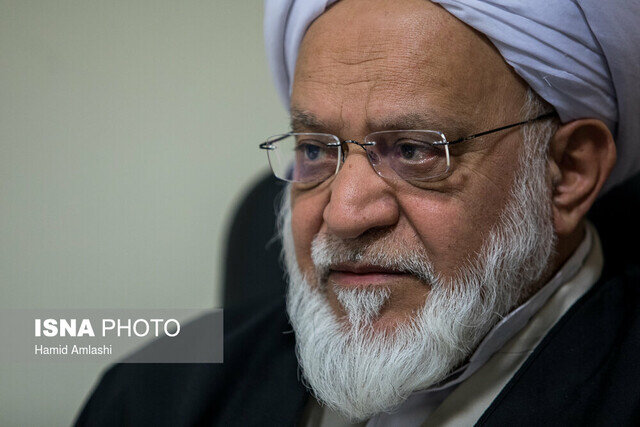‘There is no term as blacklist in FATF’

TEHRAN - Gholamreza Mesbahi-Moghadam, a member of the Expediency Council, has said that there is no term like “blacklist” in the FATF (the Financial Action Task Force) and Iran has been put on the list of “non-cooperative” countries.
“There is no term as blacklist in the FATF. At this juncture, we have been put on the list of non-cooperative countries again,” he told ISNA in an interview published on Sunday.
He added, “Using the term blacklist has very negative effect on the public opinion.”
Mesbahi-Moghadam noted that the countries and banks which are cooperating with Iran are well aware that Iran does not finance terrorism and does not do money laundering.
“So, it makes no sense to create a negative effect on the public opinion through media and make the people think that it is the end of the world,” said the cleric who has a masters’ degree in economy.
Elsewhere, Mesbahi-Moghadam said that Iran has observed 39 out of 41 recommendations of the FATF which have had no benefits for the country.
The government of President Hassan Rouhani, in a 9-paragraph statement last week, urged the Expediency Council to remove the existing barriers in the way of approving the CFT and Palermo bills.
The government’s statement says approval of the bills will prevent the enemies to invent more excuses to put more pressure on the country.
In the statement, the government has laid emphasis on removal of any obstacle in ratifying the bills, noting that the government will do its best to solve the problem and improve the situation to prevent imposition of more losses on the country’s national interests.
Rouhani said on February 23 that Iran has been a forerunner in fighting money laundering and did not deserve to be blacklisted by the FATF.
“The great Iranian people and the Islamic Republic of Iran did not and do not deserve to be placed on an international body’s countermeasures list while it [the country] is forerunner in fighting terrorism and money laundering,” he said during a cabinet meeting.
He added, “We made efforts to prevent being introduced by the United States and the Zionist regime as violator of these measures while we are forerunner in fighting terrorism and money laundering.”
Being blacklisted by the FATF is against the Iranian people’s interests, the president remarked.
“As it was expected, it made the United States happy and will justify intensification of cruel and inhumane sanctions. Now, those who gave pretext to the United States must be accountable for their unprofessional position,” Rouhani asserted.
According to Reuters, the FATF appeared to leave the door ajar for Iran saying “countries should also be able to apply countermeasures independently of any call by the FATF to do so.”
Mehdi Motaharnia, a political analyst, has said that the government must continue efforts to reduce consequences of being blacklisted by the FATF, ISNA reported last week.
He noted that 80 percent of international trade are done under regulations of the FATF and being blacklisted will cause restrictions on economic and banking transactions.
Foreign Ministry spokesman Abbas Mousavi said on February 21 that the blacklisting of Iran is “politically motivated”.
“Unfortunately, what happened is politically motivated which exists in the international mechanisms by the United States, Saudi Arabia and the Zionist regime of Israel. They have influence on these mechanisms and make efforts to politicize them,” Mousavi said.
He noted that Iran can never be labeled with money laundering and financing of terrorism.
The U.S., the Zionist regime and Saudi Arabia had made great efforts to pressure the international body to blacklist Iran.
However, Abdolnasser Hemmati, Iran’s central bank governor, has argued the move will not affect the Iranian foreign trade and stability in foreign exchange market.
“The performance of the central bank over the last year has given this assurance to the people that such events will not create problems for Iran’s foreign trade and stability in foreign exchange market,” Hemmati wrote on his Instagram page immediately after Iran was put on the blacklist.
Hemmati said such “political and unprofessional” behaviors toward Iran has been continuing against Iran since the summer of 2016.
He said the representatives of the U.S. and its allies at the FATF had focused on undermining expert reports about the great steps taken by Iran in line with the FATF requirements.
NA/PA
Leave a Comment